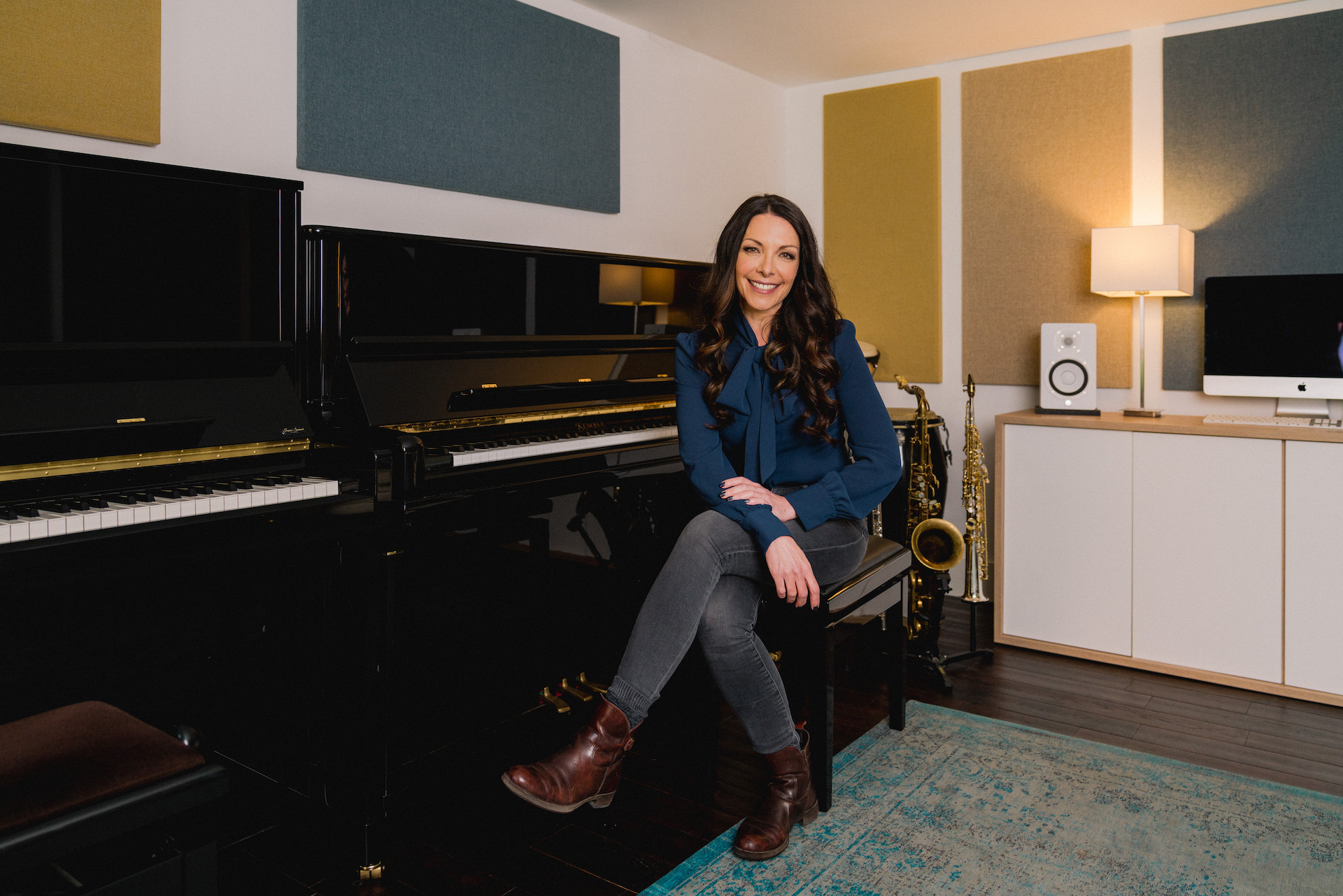When you first start out your career as a musician, you say Yes all the time. That’s because you have few opportunities to ply your trade and actually make money playing. But as you develop, you realise there are just only so many hours in a day.
That means you need to be judicious with your time. It becomes your most precious resource. When choosing between possible gigs, which one is more worthy of this finite thing you have?
But it goes beyond that. Because you can’t spend all of your time playing gigs or getting to the next one. A human life is much richer than any one thing, even music!
In the long run, learning how to respect your time also proves crucial to prevent the inevitable fallout from working nonstop — burnout.
Before I knew the art of saying No, I got to know the brick wall we call burnout. But now I wield that little word like a secret weapon. It’s able to keep me happy and healthy, and it is there whenever I need it.
Unfortunately, we live in a culture that makes it difficult for people to figure out how to set boundaries for themselves. That’s why I’ve created this guide, which tells you what you need to know to protect yourself from burnout.
A Quick Burnout FAQ

Before we go any further, let’s define what we mean by “burnout.”
Burnout is a deep feeling of exhaustion caused by prolonged stress. It can happen because you are emotionally or physically drained, but most often people use it to refer to becoming mentally drained from one’s career. In some cases, you can feel burnout on multiple fronts.
So what are the signs of burnout? This state usually comes along gradually, with symptoms slowly getting more intense over time. Those symptoms of burnout include:
- Exhaustion, even when you are getting enough sleep and rest
- Changes in sleep pattern or appetite
- Headaches
- Physical pain, like soreness and achiness, that doesn’t go away
- Digestion issues
- Emotional flatness and a lack of interest in your work
- Work either feels meaningless or completely overwhelming
- Poor performance
- Feelings of hopelessness or being trapped
Burnout might not include all of these symptoms, but it will get worse the longer you don’t address the key issue. When you begin feeling some or all of these, it’s time to mitigate whatever is draining you.
If you don’t take a proactive approach, burnout has major consequences. Over the long term, it will damage your performance and quality of life. It can also lead to an overreliance on food, alcohol, or drugs — and that can lead to even bigger problems with addiction down the road.
Sometimes it’s hard to tell if you are getting burnout or are just experiencing a bit of stress. We all know there are choke points in life when everything seems to need your attention all at once. That doesn’t necessarily mean we are burnt out.
The key difference is that stress makes you emotional, urgent, and hyper-focused. Yet burnout makes you feel emotionally empty and makes it difficult to connect to the task at hand.
So how many people experience burnout? In 2021, a study by Indeed showed that 52% of respondents experienced burnout at their jobs. That’s an enormous number. Why are so many people experiencing this issue?
It turns out, the more we know the answer to why we can’t stop ourselves from working, the better equipped we are to set boundaries.
The Toxicity of Productivity Culture and Grindset

We live in a culture that increasingly upholds productivity and “the grind” as the highest good. Look on Instagram, TikTok, or any number of social media spaces, and you’ll see endless tips about how to stay organised and be more productive.
The “grindset” — as it is colloquially called — can become incredibly toxic, with a worldview focused entirely on getting more done and rising through the ranks in your career. The attitude of “rise and grind” measures the value of our days entirely by how much work we accomplish, and it encourages people to take an unbalanced view of life.
Obviously, there is nothing wrong with being organised and productive. These are traits that help you get more done, and if you are passionate about what you do, that can be a great thing! Also, success in your career should be celebrated, and there is nothing wrong with pursuing it.
But it’s important to remember a phrase that business gurus have tossed around for years: What gets measured gets done.
Basically, whatever metric you use to measure your improvement will end up being the thing your effort goes toward. So you need to be very careful what you measure.
If you focus on measuring your productivity, you’ll be more productive. But is that the only thing in life that’s important? What about your emotional wellbeing? Your spiritual fulfilment? Your community? Your family?
Putting productivity above all other concerns leaves us devoid of many things that make life worth living. It can even begin to work like an addiction — what some experts call toxic productivity.
At this extreme end of the spectrum, checking off boxes on your to-do list becomes an obsession, and your self worth becomes entirely wrapped up in your work output. The saddest part? Falling into this pattern usually makes your output poorer, as you spend such little time or energy being mindful about where you place your attention.
It can be especially hard as a musician. Like many freelancers and small business owners, a musician needs to go out and get work. There is no promise of money coming in the door tomorrow.
That can create a habit of accepting just about as much work as you can possibly manage. Then, the thinking goes, you will have some money reserves if things dry up in the future.
But that scarcity mindset is just a backdoor to the “grindset” mentioned above. It all leads you to overwork yourself.
It’s amazing this problem is still rampant. After all, there has been so much helpful public discussion about setting boundaries in recent years — especially in personal relationships. And yet there’s been very little about setting boundaries with work.
Whether in your love life or career, boundaries are there to protect you and those around you.
The Magic of Boundaries
 Consciously setting boundaries in your life is a magical thing.
Consciously setting boundaries in your life is a magical thing.
What does having a boundary mean? Boundaries, in the context of burnout from your career, refer to the limits we place on what work can ask of us.
One work boundary growing in popularity relates to answering work emails after hours. Letting yourself attend to work emails as your first priority, even in your time off, limits your engagement with family and erases the restorative power of downtime.
The solution? A boundary! Drawing a line in the sand that you won’t check work email after 6 pm grants you the break you need. And if it’s communicated well to others, it almost always proves to be perfectly fine.
Boundaries don’t have to be inflexible rules. Maybe there is an extremely important email on a matter where time is of the essence. In that case, you can decide to bend a bit. But you need to beware: the more you bend your lines, the less effective they are.
What are some signs that you could practise setting boundaries in your career?
- You find it difficult, awkward, or uncomfortable to say “no” to requests
- You constantly find yourself overworked
- You have a hard time communicating your needs upfront
- You rarely (if ever) take time off
In short, if your work keeps getting more of you than you can manage to give it, you need to set boundaries.
The major problem is that this requires admitting we are overwhelmed. That cuts against toxic productivity — where we are trying hard to be the kind of person who can do it all and do it all the time.
So it takes a little bit of effort to know you need to set a boundary and feel it’s okay to say that outloud. Once we can do that, we enter the art of setting boundaries.
The Art of Setting Boundaries
 Figuring out you need to set a boundary is the first hurdle. But then what do you do?
Figuring out you need to set a boundary is the first hurdle. But then what do you do?
What Got You Here?
This question asks us to reflect on what needs aren’t being met and why. Look at what’s going wrong and get specific about how you can address the issue.
Maybe it’s all about stress from not getting enough days off a week. If you absolutely need two (or more) days off in a row to recharge, pick which days those will be and start keeping them sacred.
A little self reflection ends up going a long way. If you can pinpoint the exact thing that’s bothering you, you get the most out of your effort.
Don’t Do It All at Once
You don’t need to radically change your relationship to work in one day. In fact, that can be a problem, because we end up changing so much we don’t really know what’s fixing our problem and what isn’t.
Going a little bit at a time allows you to get in the swing of setting boundaries, and it also gives those you work with time to adjust.
You will slowly build confidence in this, I promise! At first, you might be worried that by saying No, you are leaving money on the table or you are ruining potential opportunities. But believe me — you don’t want to work with people who can’t respect your needs.
Be Clear and Consistent
If you don’t make boundaries super clear to yourself and others, you will have to bring them up when they’ve already been crossed. That gets messy, and most people find it difficult to enforce a boundary at that point.
Clarity also allows consistency, which is the only way you (and other people) will take a boundary seriously. It’s a sad fact, but it’s true — people won’t respect a boundary if you don’t consistently enforce it.
The Money Question
This is something we’ve skirted around so far. Because let’s face it, the ability to say No can feel like it all comes down to having the money to go without work.
I understand this concern, and there is some truth to it. For instance, when you are beginning your career as a musician, it’s probably a good idea to take all the gigs you can and push your limits. The same goes for just about any career. Gently pushing your limits and exploring your options is the only way you grow!
But even in the glory days of youth, there’s a lot more to life than your career. There’s falling in love, having fun, and picking up hobbies. There’s walking the dog and making sure to call your mum.
It’s never too early to think about your priorities and make them real by saying No. There are situations where you don’t have the financial resources to set a lot of boundaries, but you must hold some space for yourself, no matter what.
Fighting Burnout in the Long Term

As you set and enforce boundaries, you’ll start to find you have a lot more energy for the work that you do. You find you perform better and enjoy your career more, able to show up fully. So in the long run, you end up being more productive than if you’d sacrificed yourself on the altar of productivity.
But you’ll also find that these things are always in flux. As the situation changes, having a conscious practice of setting boundaries allows you to change along with it.
In the end, protecting yourself with saying No isn’t really about being negative at all. It’s about keeping space open so you can say Yes to more things.







